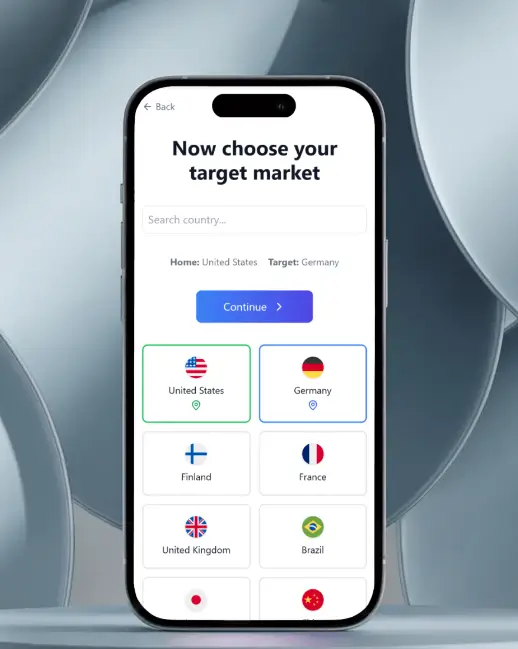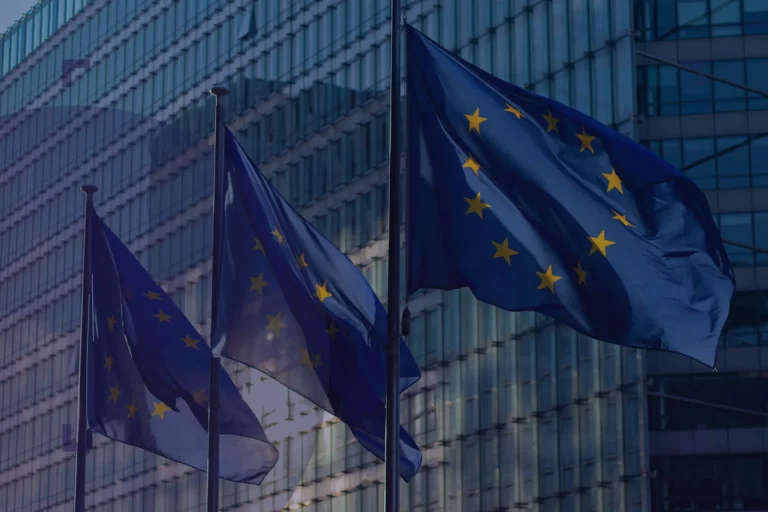Expanding your tech company into Europe is a major decision. Recognizing the right moment is critical for success. Below are five clear signs that your company may be prepared to take this important next step:
1. You Have Clear Evidence of European Market Demand
Are European customers already contacting you about your product or services? Active interest from potential buyers across Europe indicates genuine demand. This could include requests for demos, inquiries about availability, or traffic to your website from specific European countries.
When European customers seek out your product, it’s usually because they can’t easily find local alternatives. This type of organic demand signals a clear opportunity. Checking your website analytics, reviewing customer inquiries, and monitoring international requests can help confirm if the demand is sufficient to justify expansion.
However, interest alone isn’t enough—you must ensure your financial position supports the expansion.
2. Your Company is Financially Ready for a European Expansion
Expansion into Europe means more than just opening an office abroad; it involves significant upfront investment and ongoing costs. You’ll need additional resources for marketing, local hiring, product localization, and compliance with European regulations. Before expanding, evaluate your financial health carefully.
Stable revenue, healthy cash flow, and financial reserves to absorb unexpected costs are essential. If your current financial state is strong and you can confidently invest without harming your core operations, you’re on the right path. Preparing detailed budgets and financial forecasts can help confirm your readiness.
Financial readiness sets the foundation, but your domestic success also matters significantly.
3. You’ve Already Achieved Success in Your Home Market
A proven track record at home indicates your tech company has a reliable product and strong operational processes. Success domestically shows potential European customers that your product is already valued elsewhere, reducing their perceived risk in adopting it.
Having an established sales, marketing, and customer support infrastructure means your team can quickly adapt to European markets. You already understand customer expectations and how to deliver consistently good service. Such experience greatly reduces risks associated with market entry.
Once you’ve confirmed domestic success, it’s crucial to consider how local partnerships can support your European growth.
4. You Have a Clear Strategy for European Partnerships
A strategic approach to partnerships significantly boosts your chances of success in Europe. Effective local partners can help bridge cultural gaps, offer valuable market insights, and accelerate your entry into new markets. Consider what partner types align best with your goals:
- Local resellers who understand customer buying habits
- Established European distributors who handle logistics efficiently
- Integration partners who complement your technology offerings
- Service providers with proven local customer support capabilities
Creating a detailed partner strategy helps ensure your European market entry is well-supported and strategically sound. With the right partners identified, you’re well-positioned to manage local hiring and navigate regulatory requirements.
5. You’re Prepared for Local Hiring and European Regulations
Local talent is vital for credibility and successful market integration. Hiring people who understand the European market, speak local languages, and have relevant industry connections significantly boosts your potential for success. Effective local hiring reduces market entry friction and accelerates growth.
In addition to hiring, European markets have stringent regulations around privacy, product safety, and industry standards. Your company needs the capability and resources to quickly understand and adhere to these rules to avoid costly compliance errors or delays.
Being prepared for local hiring and regulatory compliance sets you up to achieve sustainable success, provided you manage expectations realistically.
6. You Have Realistic Expectations for Long-Term Growth
Market entry into Europe typically takes longer and can be more complex than anticipated. Quick wins are possible, but sustained success requires patience, flexibility, and a clear, realistic growth strategy. Anticipate potential setbacks, cultural differences, and slower initial progress.
Approach the European market with a commitment to ongoing investment and adaptation. Realistic expectations ensure you can sustain your efforts through early challenges and adjust strategies as needed.
Ready to Take the Next Step?
If these signs align with your company’s current state, it may be time to seriously consider expansion into Europe. Our experts provide comprehensive readiness assessments, tailored market entry plans, partnership strategies, local hiring support, and regulatory guidance to ensure your European expansion succeeds. Contact us to find out how we can help you successfully enter the European market.
Think you’re ready for international expansion? Stop guessing, play our quiz game to find out!
The game is completely free to play and you’ll get a personalized and detailed analysis at the end.


















